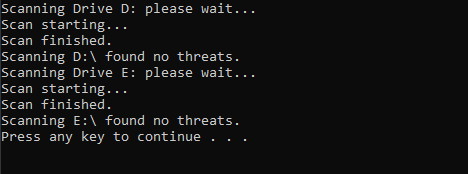New
#1
Looking for general antivirus advice in a third world country
So I'm after general advice,
I currently work in a third world country assisting the national police with IT infrastructure (mainly purchasing and installing).
Issues I am having:
They do not have internet connectivity, if I want to update a system (Most are windows 7, I'm trying to update them to Windows 10 via the free upgrade where I can) I need to download the manual updates and install them manually.
Viruses, so many viruses! I am constantly pulling off viruses from systems, my record is 45 on one system. I have been using Avast (and Avast rescue disk). Every USB I come across is riddled with trojans and Win32 viruses.
I plugged my USB into a particular system to load a printer driver only to find when I had returned to my system that it had automatically uploaded 3 different viruses to my USB.
I'm planning on installing Avast on every system and setting the auto scan feature to run daily. But my main issue is how can I find a way to have every USB scanned upon insertion into a machine? I do not see anyway to prevent the rampant spread of viruses unless I can physically sanitize every USB 1 by 1 (which is impossible). I need some way of auto scanning every USB that is inserted and automatically sanitized.
Does anyone have any suggestions on this? Can I create a *.bat file and a task schedule? Has anyone else had this issue in an inter office setting?
I honestly feel like I'm playing whack-a-mole.


 Quote
Quote



